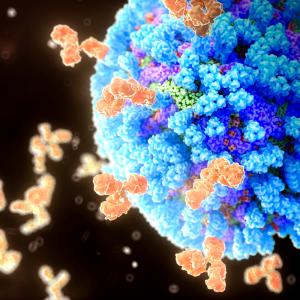
IMAGE:GETTY/FGTRADE
With news swirling on social media, or in your social circle, about the range of reactions to the coronavirus disease (COVID-19) vaccine, it’s normal to wonder: If I get the shot, what will I feel like afterward?
For most people, the side effects of the COVID-19 vaccine are mild and don’t last long—between a few hours and a few days at most. Some people experience a sore arm, or flu-like symptoms such as fatigue, fever, and chills.
The benefits of the vaccine are worth any temporary discomfort, says Michael S. Phillips, MD, NYU Langone’s chief epidemiologist.
“A side effect is an expected reaction to the COVID-19 vaccine,” Dr. Phillips says. “It happens in a wide variety of folks. And when it’s over, your body is better able to protect you against severe disease.”
Common COVID-19 Vaccine Side Effects
As of the first week of May, more than half of U.S. adults—that’s about 150 million people—have received at least one dose of the vaccine. Here are the most commonly reported side effects:
- pain, redness, or swelling on the arm where you received the shot
- tiredness
- headache
- muscle pain
- fever or chills
- nausea
A study involving more than 600,000 people who received the COVID-19 vaccine showed that a sore arm is the most commonly experienced side effect. One in four people experienced headache and fever. Side effects are more common in people under age 55, and women are more likely to experience them than men. People who had COVID-19 also are more likely to experience side effects than those who did not.
Some people experience no side effects at all, which Dr. Phillips says is also normal and not a reason to be concerned. “Your body is still developing that immunity, regardless of what type of side effects you have, or if you have any at all,” he says.
Managing Side Effects After COVID-19 Vaccination
If you do feel less-than-great after your shot, here are some suggestions:
- If your arm hurts, apply a clean, cool, wet washcloth to the spot where you received the shot. Moving the arm around can also ease the ache.
- If you’re feverish, drink plenty of fluids to stay hydrated.
- Acetaminophen, ibuprofen, or aspirin can ease any aches or pains.
- If side effects don’t go away within a few days or are really worrying you, call your doctor.
“In some sense, side effects are good,” says Dr. Phillips. “The vaccine is causing your body to have the same reaction as it would to the actual virus, but without the risk of the complications that come with being sick. And when it’s over, your body knows how to fight the virus if it ever sees it again.”
COVID-19 Vaccine Recommended for Most
While the vast majority of people are eligible for the vaccine based on their health status, people who have certain medical conditions may respond differently to the vaccine, or might be advised against receiving it altogether. Talk to your doctor before getting the shot if any of these apply to you:
- You had a severe allergic reaction to a vaccine in the past.
- You are pregnant, thinking of becoming pregnant, or breastfeeding.
- You have a condition that affects your immune system.
- You are getting radiation therapy or chemotherapy.
- You are taking medications that affect your immune system or have taken corticosteroids for more than 14 days.
Public health officials advise that anyone who can be vaccinated against COVID-19 should be vaccinated, not only for their own health, but so that we can move past the pandemic. When more people become vaccinated, the virus has a harder time circulating because there are fewer people that it can infect.
“COVID rates are going down, and that’s great news, but they’re going up elsewhere in the world, and we’re not out of this pandemic,” says Dr. Phillips. “The only thing in the history of infectious disease that’s proven to curtail infectious outbreaks such as this is vaccination.”
Vaccination appointments are are available to all NYU Langone patients age 16 and over. You can schedule your shot through your NYU Langone Health MyChart account or the NYU Langone Health app.

